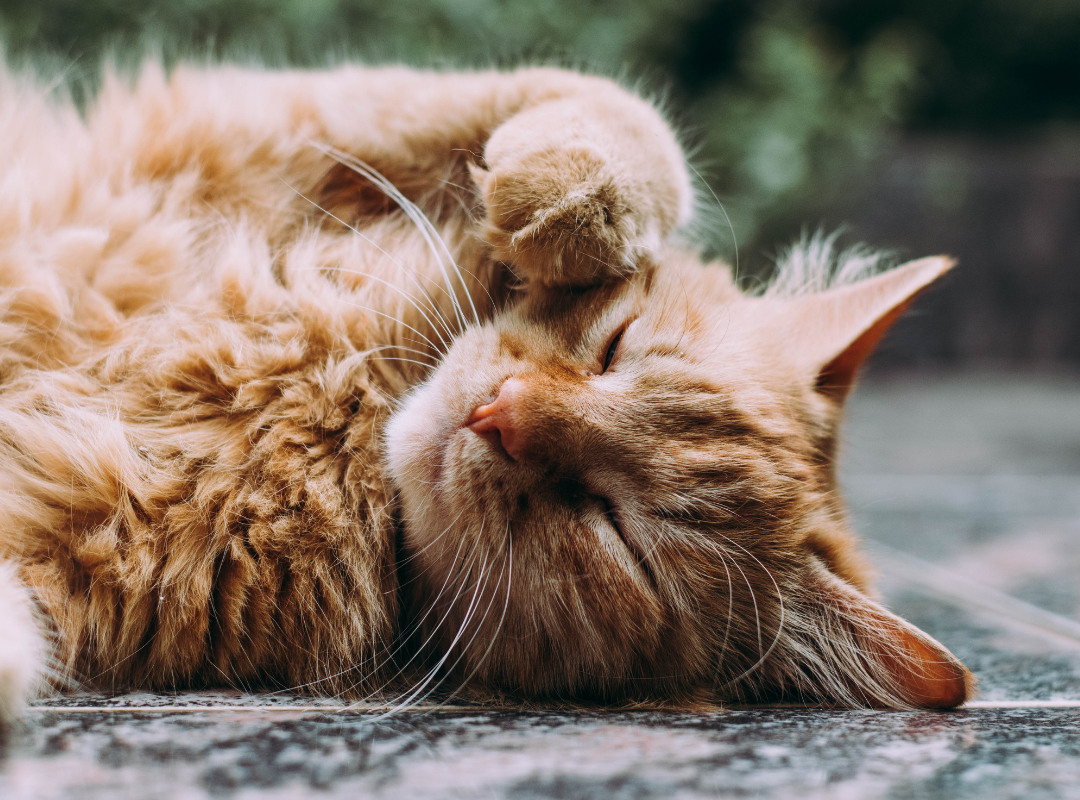All cats will experience digestive upset and/or gastrointestinal issues from time to time, but knowing the potential causes and symptoms, as well as what to do about them will help get your kitty feeling better quickly!
Causes of Digestive Upset in Cats
- Disease or illness
- Viruses or parasites
- Hairballs
- Eating something they should not
- Stress and anxiety
- Sudden changes in diet
- Overeating
- Poor quality food
- Post-surgery
- Swallowing a foreign object (blockage)

Symptoms of Digestive Upset in Cats
- Loss of appetite or weight loss
- Vomiting
- Diarrhea or Constipation
- Lethargy
- Symptoms of dehydration
- Changes in behavior, such as hiding or lack of interest in play
When Should You Consult Your Vet?
If your cat is suffering from gastrointestinal problems or stomach upset, you first need to assess if it’s just a passing thing, or if it may be something more serious. This means the first step is to rule out any potentially dangerous health issues.
Contact your vet right away if your cat has stopped eating, is unable to keep food or water down, or has been vomiting for more than 6 hours.
You should also consult your vet if your cat has had diarrhea that lasts more than a day or two, has worsened, or if you see blood in their stool.
It’s important to remember that both vomiting, and diarrhea can quickly lead to dehydration. If not treated promptly, this can become a serious situation that needs medical attention.
What Type of Digestive Issues Can I Treat at Home?
Once you have determined that your cat does not have an underlying health issue or illness, or an acute situation, such as a blockage, there are products that are both restorative, as well as preventative. These products have been specifically formulated to help get your cat back on track and keep them feeling their best every day.
Quick Acting Solutions for Digestive Upset
Bland Diet
If your cat is having minor digestive upset, the first thing to do is feed them a bland diet. A bland diet consists of lean proteins, along with small amounts of easy to digest carbohydrates. Most veterinarians recommend withholding food for up to 24 hours before starting a bland diet. This will help lessen irritation in the digestive tract and stomach.
Provide water in small amounts at a time, offering more as symptoms lessen.
Once your cat’s vomiting and/or diarrhea has subsided, you can begin feeding the bland diet.
An easy to make home recipe is boiled white meat chicken, combined with white rice. Adding low sodium chicken broth can help with hydration.
You can also try other options like baby food, or a prescription bland diet that your vet can prescribe. The key is that it be bland so that it calms the digestive tract and soothes the tummy.
Probiotics

If your cat is experiencing a temporary, but non-acute bout of diarrhea, using a fast-acting supplement can help to quickly resolve the issue. Try our Ready Balance Probiotic Gel For Cats.
Anti-Diarrheal
If your cat has more acute symptoms of diarrhea, a fast-acting anti-diarrheal liquid can help to firm stool and provide relief quickly. Try our Anti-Diarrhea Liquid for Cats.
Long-term Support for Digestive Maintenance
When considering how to maintain your cat’s digestive health, there are two very easy to use supplements you should consider.
Daily Probiotics

Adding a daily probiotic supplement to your cat’s diet will help to maintain proper digestion for everyday health. Try our Probiotic Chews for Cats or our Probiotic Powder for Cats.
Hairball Support

Although having some hairballs is normal, too many hairballs can be a symptom of an underlying health or digestive problem. In addition to brushing your cat regularly, especially if they have long hair, you can promote the natural elimination and prevention of hairballs with a daily supplement that adds fiber to your cat’s diet. Try our Hairball Chews for Cats or our Hairball Powder for Cats.
Efficient digestion is essential for maintaining your cat’s health. Have the right products on hand for any minor tummy troubles you can treat at home, as well as the necessary daily supplements to prevent them, and always consult your vet if symptoms are acute, or have persisted more than a day or two. Following these guidelines will help your kitty live a long, healthy, and happy life!
Products related to this article:
- Ready Balance Probiotic Gel for Cats
- Anti-Diarrhea Liquid for Cats
- Probiotic Chews for Cats
- Probiotic Powder for Cats
- Hairball Support Chews for Cats
- Hairball Support Powder for Cats
Shop all Cat Digestion products.
Every Sale Supports a Shelter Pet. Learn More.
Made in Vermont. Learn More.
If you suspect your pet is sick, call your vet immediately. For health-related questions, always consult your veterinarian, as they have examined your pet, know the pet's health history, and can make the best recommendations for your pet.




